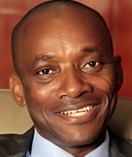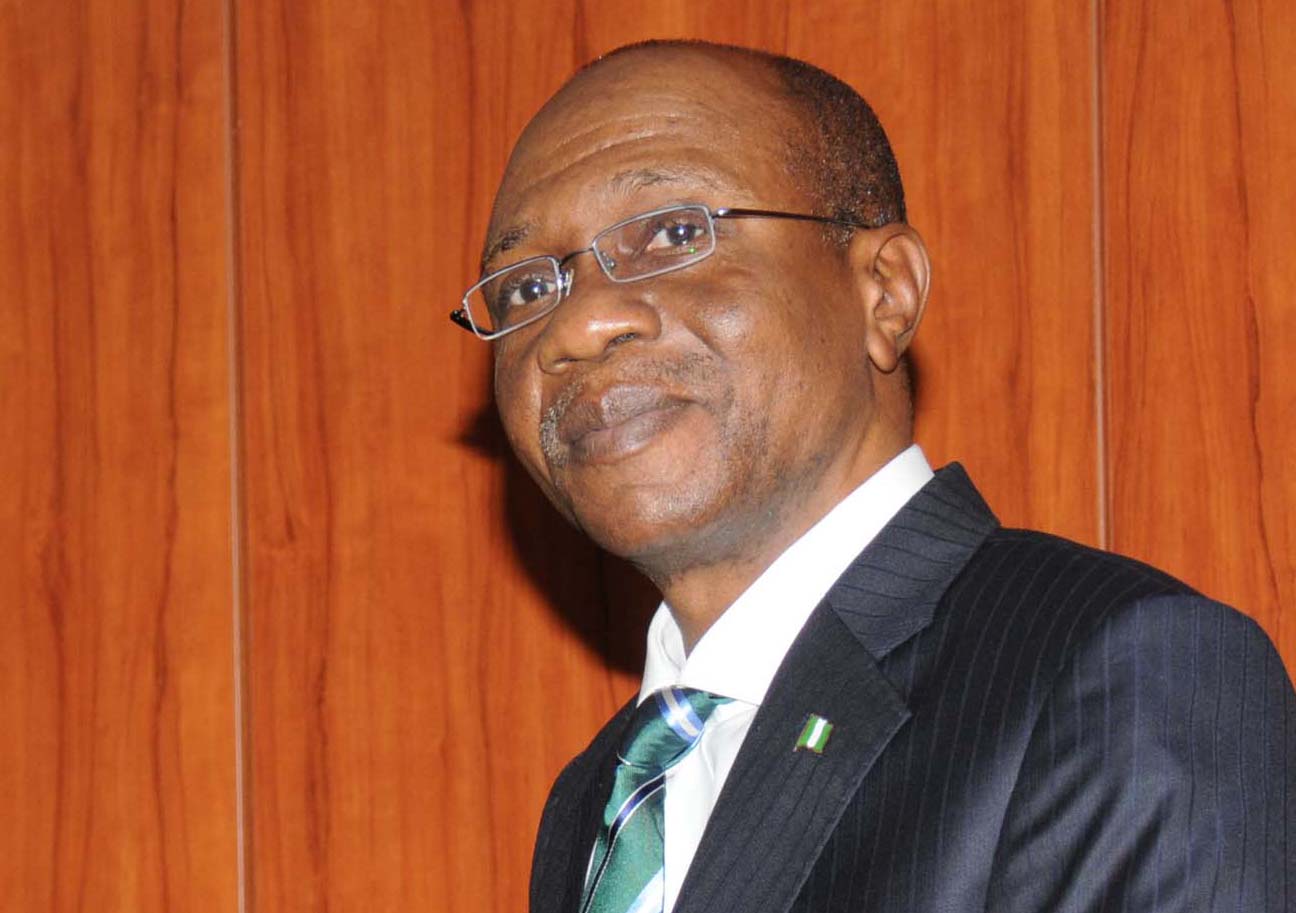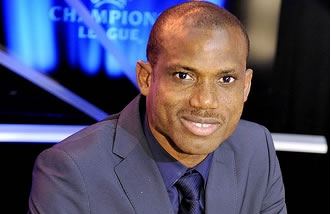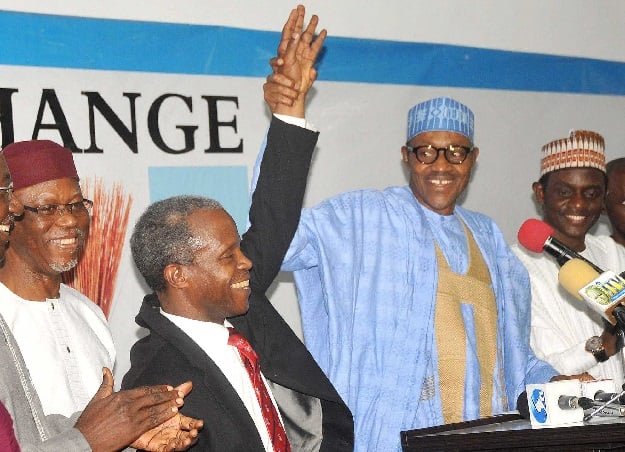An annual human rights lecture is an appropriate opportunity to reflect on the relationship between energy poverty and household poverty. This is perhaps, because poverty is the major challenge of human rights in Africa today.
We have come a long way in human rights oriented governance. Our democracy has consolidated its human rights credentials. The electoral defeat of the Peoples Democratic Party (PDP) and peaceful transition of power to the All Progressive Congress (APC) crystalize and cleanse our democracy. We have turned a critical corner in consolidating human rights based governance. Although, our politics remains dysfunctional and deficient of liberal values, we have progressed far away from the depressing period of military dictatorship.
So we are welcome to an era of human rights. One sanguine sign of this time is that we don’t have political prisoners and no one is claiming that his human rights are openly violated by government because he holds political views divergent from those of the ruling party or authority. But the critic can say that this rosy view comes only from the gold-plated lens of civil and political rights. The critic can say that if you look at the rear mirror of social and economic rights you will see that we are still stuck in the quagmire of illiberal governance.
Advertisement
The debate turns on whether we are just considering civil and political rights alone or also contemplating social and economic rights. If the latter, then we are not much out of the wood. In the last 16 years since the march of democracy we have not improved the statistics on poverty. For the millions of Nigerians living in acute poverty, no matter how poverty is defined, the real evidence of progress in human rights is that they can feed well, have access to quality healthcare and have the assurance of fulfilling meaningful life projects. For these millions the improvement in electoral democracy and civil liberties is little cheering news.
Advertisement
So, really it is all about poverty. Then, how poor are Nigerian? If we use the famous one-dollar a day measure then we will miss out the magnitude of poverty in Nigeria. Officially, we are being told that about 60-70% of Nigerians falls into the poverty bracket. But that is if we are looking at the income matrix alone. Couple that with the vulnerability matrix and Nigerians begin to look a lot poorer. The vulnerability matrix looks at the vulnerabilities that afflict the people and the prospect of easily mitigating those risks. The complete absence of even the most rudimentary social security means that many Nigerians who may be earning living wages are still poor because in the event of exposure to those risks there is no effective mitigation. So, we are poor as we are exposed to risks. And Nigerians are very much exposed to unmitigated risks.
It is important to keep in mind that poverty is largely a function of how policies are designed and implemented. Poverty is not an act of nature. Poverty is not essentially an accident. Poverty arises from the policy choices that a society and individuals in the society make. Because it is a product of policy it is also path-dependent. Until we revise policies or implement them differently, poverty outcomes subsist. The linkage between poverty and policy should lead us to the linkage between energy poverty and household poverty.
Advertisement
Energy poverty leads to household poverty. This is because those who consume less energy are poorer than those who consume more energy. And poverty leads to less consumption of energy. So, it is a two-dimensional relationship. Energy poverty causes household poverty. And household poverty reinforces energy poverty. Energy poverty is measured by per capita wattage. Measuring energy poverty in terms of per capita wattage shows that although Nigeria is the biggest economy in Africa measured by Gross Domestic Product (GDP) and a frontline economy in Africa in terms of Per Capita income, it is one of the poorest in terms of consumption of electricity measured in wattage. We are poorer in energy terms than our less endowed neighbors like Ghana and Benin Republic. They consumer more electricity than we do on per capita basis (even though we have slightly larger grid).
I will like to focus attention on some of the components of energy poverty that create or reinforce household poverty. The first is the question of supply. Nigeria suffers from gross inadequacy of grid supply of electricity. With a mere daily generation of about 4,000mw for about 170 million people we could have one of the lowest per capita wattage in the world. This simply means that if electricity comes only from the grid every Nigerian will suffer acute energy poverty. But of course, more than 40,000mw is generated daily off-grid by captive generators. But this is not available to most of the poor. The very poor cannot afford to be captive generators. So, the poverty profile of electricity generation is clear. There is little supply available on the grid. And even the little electricity will often be distributed towards richer neighborhoods where the rich are more disposed to pay. And the poor do not have the financial resources to generate their own electricity in any consistent basis, their deprivation becomes almost total.
Advertisement
The second component of energy poverty is the problem of access. In addition to Nigeria having a laughable 4000mw for 170 million people, less than 60% of its citizens are connected to the grid. Most of the unconnected 40% are the very poor who reside in rural and semi-urban communities. Lack of access to electricity is a major impediment to energy sufficiency for millions of Nigerian poor because if we miraculously generate above 100,000mw these poor stranded in a no-man’s land will not access grid electricity.
Advertisement
The third component of energy poverty relates to pricing. It is a matter of affordability. Many of the poor can barely afford the cost of energy supply, whether on-grid or off-grid. Electricity tariffs are supposed to be reasonable and affordable. But oftentimes they are not. Where they are not affordable it results in energy poverty notwithstanding the quantity of supply and network coverage As long as people cannot afford to pay electricity bills; or if making such payments erodes their capacity to purchase other vital items of social and economic welfare, they are caught in the web of energy poverty.
Advertisement
These are the three main components of energy poverty. How do they impact on household poverty? Lack of access to electricity contributes to household poverty by diminishing the prospect of the local economy on which the poor mostly make their living. Take agriculture as an example. Many poor people who reside in rural communities in Nigeria depend on the proceeds of farming for livelihood. Energy supply is critical to their survival. From harvesting, drying, processing to storage of foods, the lack of electricity is a major contributor to failure of the policy of food sufficiency, or even the success of subsistent farming.
Advertisement
In terms of healthcare, access to electricity has a significant impact on health outcomes. These outcomes range from environmental degradation to spoilage of vaccines. Where there is no light diseases flourish and effective medical care is inhibited. Nigeria’s high maternal mortality is aided by the poor electricity supply that leads to mishap during child delivery and other medical operations. Medical emergencies are impaired if there is no light. The same with education. Capabilities in reading and writing in the earlier years of schooling, which is the main indication of educational achievement, will be underdeveloped where schooling is done without electricity as in many Nigerian villages. Using moonlight or all sorts of paraffin lamps would strain the eyes of scholars and reduce the amount of learning that can be done. Ultimately, educational outcomes will be poor, even in latter years.
Now, these three critical capabilities, feeding, health and education, are the drivers of human development. Their absence underlines what it means to be poor. They are also the pathways to escaping poverty. Unfortunately, these pathways are not available because of inability to consume more electricity.
I will like to say a few things about what the Nigerian Electricity Regulatory Commission (NERC) is doing to address these components of energy poverty in Nigeria. First, with scarcity of supply we just have to increase capacity. Since 2000 when the basic policy framework for the power sector reform, the National Electric Power Policy (NEPP) was established, the focus of the reform has been to enhance access to adequate and reliable electricity through growth in generation capacity. The major policy for this is the deregulation of generation. The regulator was empowered to license new independent power producers (IPPs) who can generate electricity outside the publicly owned monopoly utility, the then National Electric Power Authority (NEPA).
We have licensed many IPPs that could generate 30,000mw. These IPPs cannot generate to the grid today. In fact, none of them are presently generating to the grid except the successor companies of the old Power Holding Company of Nigeria (PHCN), the oil companies like Shell and Agip and one or two state government owned power plants supplying to the grid. The main reasons why the IPPs have largely failed to supply to the grid since we started licensing about 2007 is because of the absence of critical market supporting institutions. Until late 2012 we did not have a commercial tariff that allows a prudent investor to recover its investment. There was no credible off-taker who could provide guarantee of payment to project developers. The PHCN was largely bankrupt and lacked creditworthiness.
Coupled to this is the problem of gas supply because of poor commercial framework for gas supply. But since 2010, after the presentation of the presidential Roadmap on Power, efforts have been ramped up to establish these critical market-supporting institutions like a commercial tariff and creditworthy off-taker. We are on course to curing acute shortage of capacity. More gas will be supplied to power plants because of improvement in the commercial arrangements for gas to power. Licensed IPPs are now closing financial deals because the regulatory landscape is now bankable.
Late last year, Azure Power, the first project-financed IPP, concluded financing for a 450mw plant. Before we established these critical market institutions this could not be possible. Today, the embedded generation regulation furthers enables distribution companies to procure additional power through bilateral contracts with modular power developers. So, we are on course to increasing available capacity and thereby reducing energy poverty.
Access is a major challenge of the sector. With about 40-50% of Nigerians unconnected to the grid the problem of energy poverty is compounded. But this can be addressed in two ways. With more electricity available to distribution companies and their revenue improving, the imperative will be for them to also expand their coverage to some hitherto uncovered areas. This will be a natural development as long as the market remains commercially viable and as long as the captive customers in the networked areas are sufficiently served. Under NERC guidance, the Nigerian electricity market is moving quickly to commercial viability. Therefore there is clear encouragement for such expansion of services. Each of the distribution companies has its expansion plans that the regulator approved. The regulatory framework is embedded with incentives for expansion of services. The regulator would need to do more to incentivize expansion of connection to unconnected areas. Again, our Embedded Generation and Independent Distribution Network regulations will encourage off-grid supply of electricity. With new focus on renewable energy, many communities far afield of distribution networks can have off-grid and island supply of electricity through optimal use of renewables that are abundant in Nigeria
Affordability is also a major challenge. Chronic shortage of power increases the price of available power from the grid. The cost of production of electricity in Nigeria keeps increasing due to the inefficiencies in the system and the low quantity of generation. The average cost of electricity is expensive. The expensiveness is further increased by the huge technical, commercial and collection losses in the system arising from many years of inefficiency of state ownership and management. The problem of affordability could be compounded in the post-privatization period as private investors focus on recovery of investment in short time span.
The regulator’s response to affordability is three-fold. First, we scrutinize the cost profiles of the operators to make sure they are only posting prudent and relevant costs. This is where effective cost recovery is critical. The law mandates NERC to pass through to customers all costs of an operator. But it must be costs that are prudently incurred by an efficient operator. Where the cost is not prudently incurred and/or the operator is not efficient the regulator would not allow the operator to recover such cost from the customers. It is in this vein that we reduced the collection losses to zero and put the burden on any operator who want us to pass the collection losses to customers to prove that it could not have avoided that loss through normal efficiency.
The second response to make tariff affordable is for the regulator to encourage operators to recover approved revenue within a longer period. A long period of recovery will smoothen the tariff. NERC has approved for distribution companies to recover their investment within a longer period of ten years instead of five years. It enables them to ensure gradual rather sharp increase in tariff to make it affordable.
The third response is through cross subsidy. Cross subsidy enables operators to recover less of the cost of serving the poor customer class through slightly increased tariff from the richer customer class. Cross subsidy distorts the efficiency of the market and should be sparing applied. But in the context of grave household poverty like in Nigeria there should be cross subsidy in other to avert rate-shock for the poor customers. The Electric Power Sector Act recognizes the need to subsidize consumption of electricity for the poor. To this end, it provides for a Power Consumer Assistance Fund (PCAF) where both government grant and cross subsidy from eligible customers are channeled to support more consumption of electricity by poor consumers.
Because meager consumption of electricity is both a cause and result of poverty it should be an established policy to continuously assist poor citizens to consume more electricity. This is especially so in the period after privatization when distribution companies will implement prepaid metering as a form of revenue protection. With prepaid metering a poor consumer who does not have money to pay for increased electricity tariff will be automatically denied access to electricity services.
Conclusion: Let me repeat that poverty is not a natural cause. Some of the underlying causes of poverty may relate to natural occurrences like earthquake and hurricane. But, ultimately, these natural calamities result in poverty because of the nature of policies that either prevents or addresses them. Poverty is a function of policies that define rules of access to resources. We also know that energy poverty could create and reinforce household poverty. The challenge therefore is to institutionalize policies that increase the quantity of energy available to all Nigerians and also ensure that there is equity in access and consumption of energy resources. This calls for creativity, courage and high sense of social justice. The Nigerian Electricity Regulatory Commission (NERC) is working on such policy guided by these values.
Being a lecture delivered by Dr. Amadi, chairman/CEO of the Nigerian Electricity Regulatory Commission (NERC), at the annual human rights lecture of the Human Rights Writers Association (HURIWA) in Abuja
Views expressed by contributors are strictly personal and not of TheCable.
Add a comment



